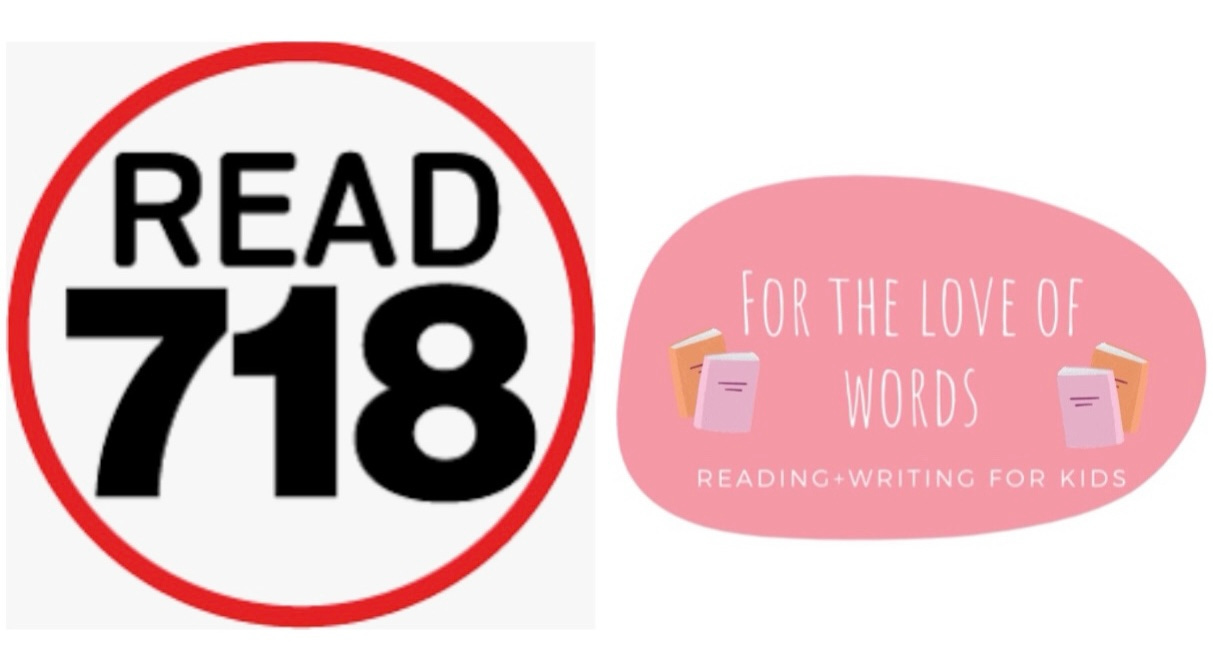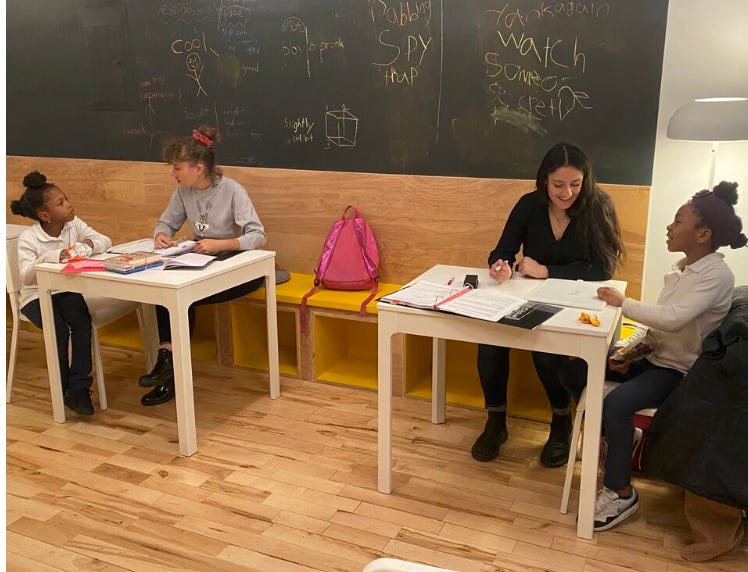As an educator in NYC I have had the pleasure of working in a variety of schooling setups, from one-on-one tutoring, homeschooling co-ops, to traditional schools. I’ve also been fortunate to talk to a lot of different people about how they approach learning and education. “How interesting it would be,” I thought to myself, “if someone put these together into an interview series and we could gather and share thoughts and maybe even reimagine the ways we educate our kids!” And well, that pretty much brings us to right now.
In addition to providing reading guides, learning activities, and creative writing lessons and prompts, I am delighted to also share some great insights in this interview series as well. I hope you enjoy.
This week I was given the absolute honor of talking to Emily Kirven a local hero and founder of READ 718. READ 718 is a Brooklyn based nonprofit that tutors literacy in low income children grades 3-8. To give you some numbers, “approximately 65% of 3rd-8th graders in Brooklyn are not proficient in reading and approximately 35% do not have “basic” literacy skills”. READ 718 has helped more than 350 learners and more than 80% go up a reading level. But more than the need or the result is the core pursuit of giving children confidence and a love of reading. I hope you enjoy this little chat.
1. I'd love to start with learning a little more about you. What motivated you to start READ 718? And now that you are years in, how does the reality compare to your original vision?
I have always loved books and reading and have also always understood education to be a huge factor in social mobility and I recognized that access to a quality education was not equal in many places. I knew I wanted to be a teacher from a young age. After teaching 7-8 graders in Brooklyn, I found that many of my students still struggled with basic literacy skills and I did not know at the time how to support them. These are the students who kept me awake at night! Most of them did not have the financial resources to get extra support outside of school and they did not have enough support in school. I knew that if they did graduate from high school, they would be doing so without being able to read well -- the system would have failed them. I started READ 718 (after returning to graduate school to become a reading specialist) with the intention of supporting these students -- those who have reading challenges after 3rd grade. The thing that has surprised me the most -- though seems pretty obvious now---is that many of the kids we see have undiagnosed dyslexia. As you know, people with dyslexia learn to read differently than others and need a particular type of instruction (systematic, multisensory phonics) in order to read well. Most kids who need it are not getting this in our public schools. It is a real problem. We originally were not set up to work with children with dyslexia, but have recently started a new program to address this. The need is great.
2. This may seem like an obvious question to some, but how does reading benefit young learners? What benefit does reading have to the low income families you work with?
The ability to read well and the practice of reading opens up the world for children. That sounds cliche, but it is true. It strengthens imagination, knowledge, empathy, identity, understanding -- I could go on. But the flip side is what do kids lose when they cannot read well? They lose the ability to fulfill their potential, to earn an income and to support themselves and a family. Poor literacy skills impact many other social issues -- poverty, health, incarceration. So, yes, it is very important.
3. I'm curious, over the years have you noticed that students who come to READ 718 face similar reading challenges? If so, what is the most common of them?
We see a lot of children who have learning issues that impact their ability to read well such as ADHD, autism, dyslexia. We also see a lot of children who don't have these issues, but who simply need more support in a particular area such as decoding multisyllabic words or comprehension of nonfiction texts, for example. Also, for some children, simply dedicating more time to practice with a dedicated tutor guiding them and supporting them can be very helpful. So, we really do see a range of students with a wide range of abilities and needs. But as I mentioned above, we see a lot of children with undiagnosed dyslexia.
4. I'm thinking about the parent who is seeing their child struggle with reading. I wonder what you would say to them, any advice to help them build confidence and enjoyment in that reader?
Establishing a reading routine early is really important. Read to your kid as long as they will let you....doesn't matter how old they are. Kids also should have a lot of choice in what they read. Try to not make reading a chore, but an enjoyable experience! Read with your kids and read in front of them, too. Go to the library regularly. Make sure they have books in their room. For kids who are struggling to read, get support as soon as possible but without anxiety and pressure! Do not wait for them to fail; get support to strengthen those early reading skills but do it in a pleasurable, low-key way, if possible. When kids get the support they need, they will learn to read. Celebrate the successes and find the strengths! If kids are really avoiding reading and hate doing it, pressuring them or yelling at them will not help and will only make it worse. And it's possible that they avoid it because there is an underlying issue. Audiobooks are great for kids who do not want to read (even better if the child can follow along in a book). Comic books, graphic novels and series books can be great for kids who are reluctant to read.
Thank you so much for reading this interview. If you would like to learn more about READ 718, or would like to volunteer, seek support, or donate, check them out.
And if you enjoyed this read, or know someone who would, would you consider telling someone about it? Forwarding, posting on social, or telling a friend is the best way to share the love of words and the most appreciated.
What did you think of this interview? What burning questions about education and learning would you like answers to?






